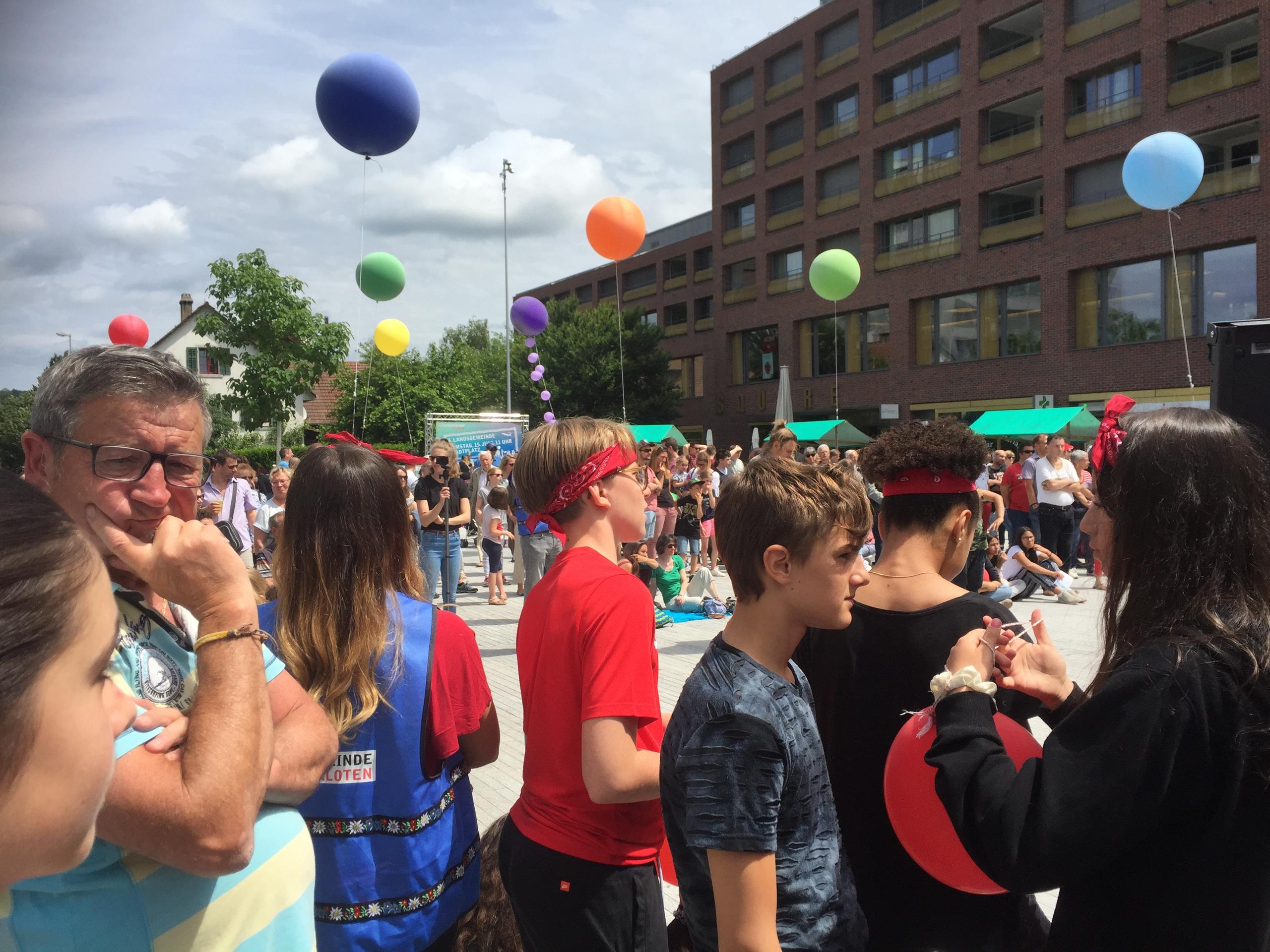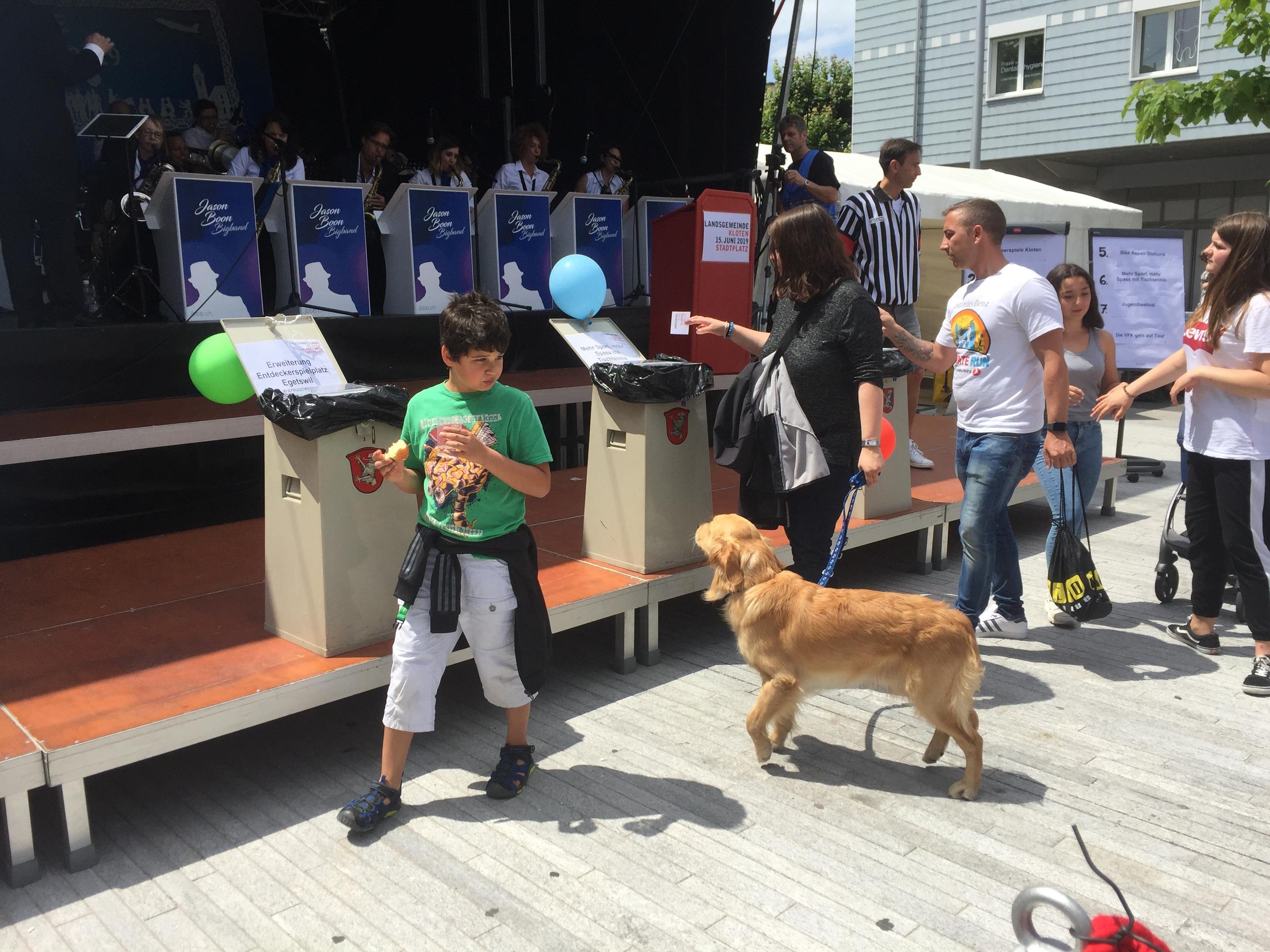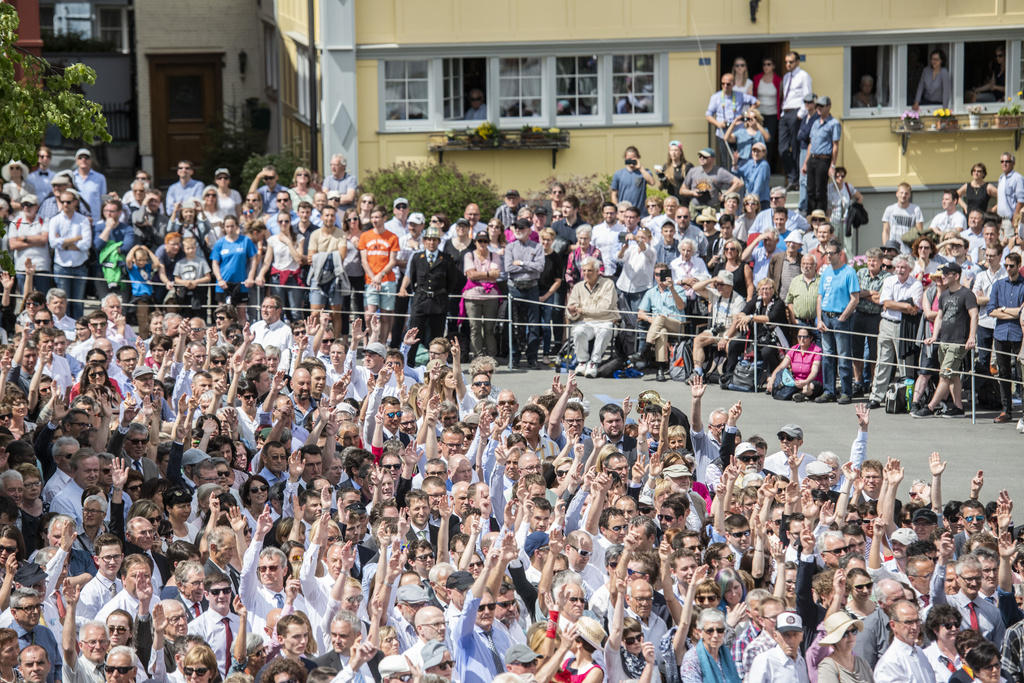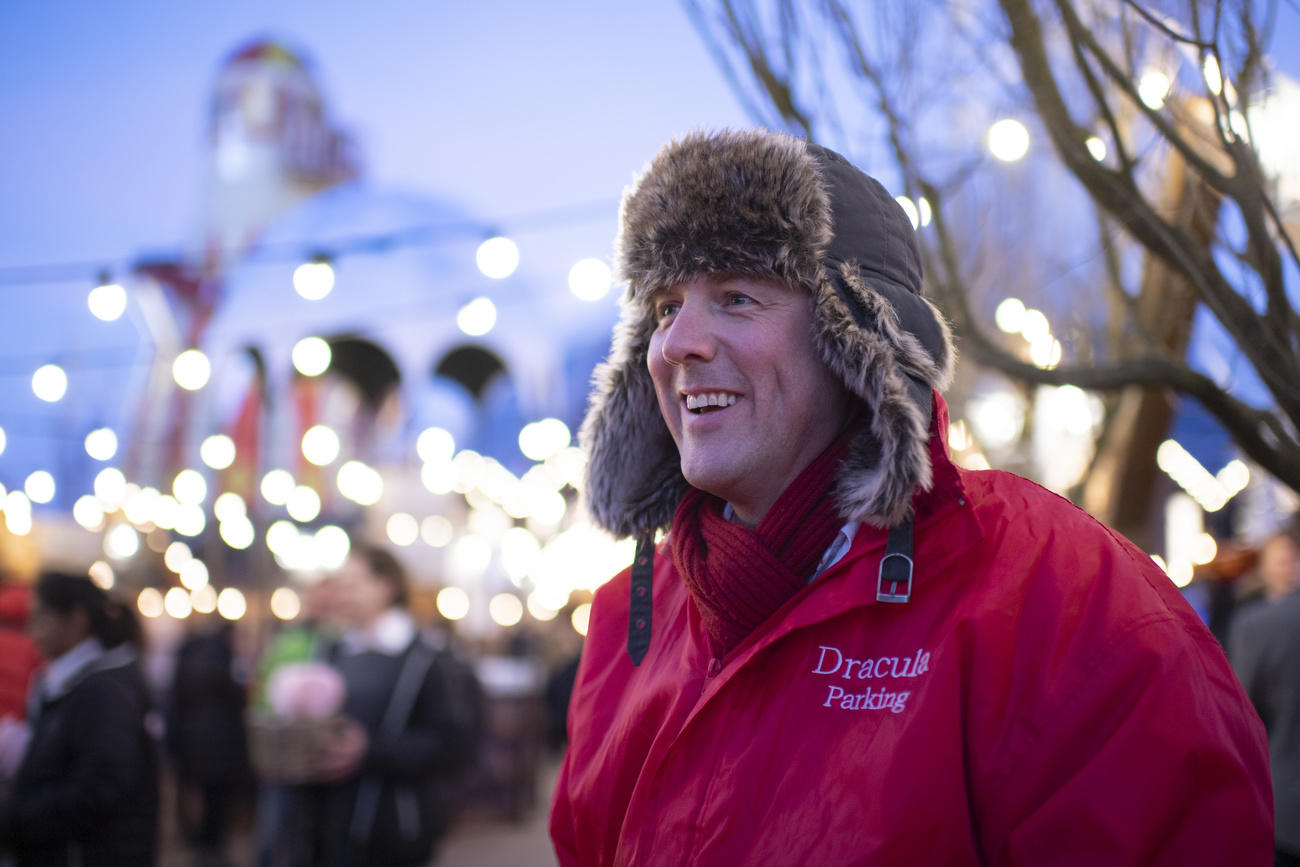Citizens’ assembly in a Swiss transport hub pushes the boundaries of democracy

With more than 31 million passengers last year, Zurich's Kloten Airport is Switzerland’s gateway to the world. The town of Kloten, the biggest international transport hub in the country, has taken a political step back in history towards the oldest form of direct democracy – the citizens' assembly. But the way it has interpreted this is pioneering - and prize-winning.
This article is part of the swissinfo.ch platform for direct democracy.
On a Saturday in summer, a passenger plane flies over the assembly square in Kloten, the airport municipality. It’s so low, you feel you could reach out and grab it. The square, on which 700 people are gathered, is surrounded by skyscrapers and paved in natural stone.
A local band is playing swing music on a stage. One stall is selling Spanish sweets, another is offering crepes. Residents arrive with dogs on leashes and holding children’s hands. The atmosphere is that of a folk festival.

This June 17 is the day of Kloten’s citizens’ assembly. It is not an official political event. But for that very reason, it is all the more in keeping with the founding principles of direct democracy — the sovereignty of the people — because the main goal is to give a voice to people who are otherwise not included in Switzerland.
“Everyone is allowed to take part in this assembly,” says Daniel Neukom, the president of the Kloten Assembly Association. That means not just Swiss voters over the age of 18, but residents of all nationalities and ages.
Originally a rural event
The “Landsgemeinde”, or citizens assembly, the oldest form of democracy, is in danger of dying out in Switzerland. Kloten is reviving it as a colourful festival of a diverse, global Swiss society.
The citizens’ assembly is the oldest and simplest form of Swiss direct democracy. All those entitled to vote in a canton gather once a year in the open air to elect their government (Appenzell Inner Rhodes) and to pass laws or set tax rates (Appenzell Inner Rhodes and Glarus.) They do this by raising their hands or their colourful voter IDs.
These two cantons are the last to still use open air citizens assemblies. Critics complain that this form of democracy doesn’t fulfil the basic democratic right to a secret ballot.
150 years ago, decision-making on political issues still took place in public in a number of cantons. Now there are only two rural regions where residents assemble for public elections and votes on cantonal matters: Appenzell Inner Rhodes and Glarus.
The Landsgemeinde in those cantons stay true to their origins as a rural event, sometimes infused with the smell of manure from neighbouring fields. In Glarus, the Alps tower above it. After the assembly, residents sit on old pickle barrels at wooden tables smoking cheroots and drinking schnapps. Someone may break into spontaneous yodelling, while someone else will start playing an accordion.
In Appenzell, the square where the people gather to take political decisions in public, is lined with pretty old houses.
A response to globalisation
In Kloten this ancient instrument of direct democracy is being interpreted anew. It is a response to modern life and developments caused by globalisation.
Kloten is also expanding political rights using the informal format of an open air assembly. Minors and foreigners – two groups who are not allowed to take part in votes and elections – are especially welcome here.
In a competition for the best project put forward by participants, issues that directly affect people are under discussion. In short, people who feel excluded from the usual political discussions or alienated by the language of politics become engaged in public life.
Day-to-day life here has an international character. The residents come from 120 countries.
The airport town of Kloten is making a mark with its modern version of the citizens assembly. The informal structure offers inclusion and participation to groups who feel less engaged in formal political processes or who are excluded from them. Those particularly affected are women, low-earners, young people under the age of 18 and foreigners. The last two groups have no political rights in Switzerland.
Local democracy is the best way to enable new forms of participation – to modernise direct democracy. On a national or cantonal level, there is no political will to extend voting rights to those under 18 or to foreigners.
Winner of a democracy prize
“Most are here to work. They stay a couple of years and then move on,” says Neukom. On this basis, it is difficult to create a sense of community, he adds. The Landsgemeinde is an attempt to strengthen social cohesion.
So this citizens’ assembly is not a formal instrument of state. But it does have the power to distribute funds. This time CHF30,000 ($30,773) is up for grabs – CHF10,000 more than in previous years.
In addition to the funds from the Kloten local authorities, this year there is also prize money from the Democracy Prize awarded by the Neue Helvetische GesellschaftExternal link. The society honoured Kloten last year for its engagement in the citizens’ assembly.
Including the excluded
The participants vote on a number of ideas. Some of them would have a hard time getting heard in mainstream political processes, because the relevant interest groups are simply not represented there. Projects up for debate include a playful German course and a youth festival. The table-tennis club is pressing for more table-tennis tables in public spaces.
Salvador, a schoolboy, is in favour of more Veloflick bike-service stations. Another group is pushing for an extension to the adventure playground.
‘It’s exciting’
Voting at this Landsgemeinde is not by the traditional show of hands. Instead each project is allocated a big balloon and its supporters group underneath it. Four projects emerge as clear winners, visible to all. A paper ballot will determine which of these will receive the biggest sum of CHF10,000.
As the band plays, the people of Kloten submit their ballots – including 14-year-old Jan, who is one of the advocates of the youth festival. “This is my first contact with politics, and it’s exciting,” he says.
Jan also clocks his first political success. The youth festival wins first place. The CHF10,000 are awarded to the school committee of which he is a member. They have also experienced for the first time that in a direct democracy, every vote counts.
Adapted from German by Catherine Hickley

In compliance with the JTI standards
More: SWI swissinfo.ch certified by the Journalism Trust Initiative














You can find an overview of ongoing debates with our journalists here . Please join us!
If you want to start a conversation about a topic raised in this article or want to report factual errors, email us at english@swissinfo.ch.